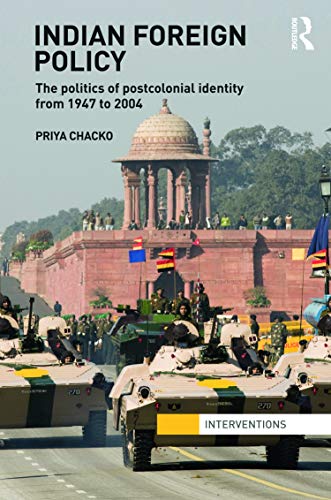

Most ebook files are in PDF format, so you can easily read them using various software such as Foxit Reader or directly on the Google Chrome browser.
Some ebook files are released by publishers in other formats such as .awz, .mobi, .epub, .fb2, etc. You may need to install specific software to read these formats on mobile/PC, such as Calibre.
Please read the tutorial at this link: https://ebookbell.com/faq
We offer FREE conversion to the popular formats you request; however, this may take some time. Therefore, right after payment, please email us, and we will try to provide the service as quickly as possible.
For some exceptional file formats or broken links (if any), please refrain from opening any disputes. Instead, email us first, and we will try to assist within a maximum of 6 hours.
EbookBell Team

4.7
96 reviewsThe rise of India as a major power has generated new interest in understanding the drivers of its foreign policy. This book argues that analysing India’s foreign and security policies as representational practices which produce India’s identity as a postcolonial nation-state helps to illuminate the conditions of possibility in which foreign policy is made.
Spanning the period between 1947 and 2004, the book focuses on key moments of crisis, such as the India-China war in 1962 and the nuclear tests of 1972 and 1998, and the approach to international affairs of significant leaders like Jawaharlal Nehru. The analysis sheds new light on these key events and figures and develops a strong analytical narrative around India’s foreign policy behaviour, based on an understanding of its postcolonial identity.
It is argued that a prominent facet of India’s identity is a perception that it is a civilizational-state which brings to international affairs a tradition of morality and ethical conduct derived from its civilizational heritage and the experience of its anti-colonial struggle. This notion of ‘civilizational exceptionalism’, as well as other narratives of India’s civilizational past, such as its vulnerability to invasion and conquest, have shaped the foreign policies of governments of various political hues and continue to influence a rising India.